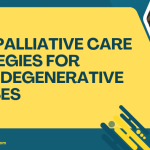Table of Contents
- Introduction
- Emotional Support
- Physical Assistance
- Coordination of Healthcare
- Education and Advocacy
- Creating a Safe Environment
- Conclusion
Introduction
Neurodegenerative diseases, such as Alzheimer’s, Parkinson’s, and Amyotrophic Lateral Sclerosis (ALS), can profoundly impact both patients and their families. As these diseases progress, individuals often require increasing levels of care and support. Caregivers play a pivotal role in this journey, providing essential assistance and emotional support to those in need. This article will explore the top five ways caregivers support neurodegenerative patients, shedding light on their invaluable contributions.
Emotional Support
Caring for someone with a neurodegenerative disease can be emotionally taxing. Caregivers often become the primary source of emotional support for patients, helping them navigate the fear, anxiety, and frustration that can accompany the disease.
Importance of Emotional Support
- Listening and Validating Feelings: Caregivers provide a safe space for patients to express their feelings, fears, and frustrations. This validation can help alleviate feelings of isolation.
- Encouragement and Positivity: A caregiver’s optimism can motivate patients to engage in activities, fostering a sense of purpose and joy.
“Emotional support is the foundation of care; it can transform a patient’s experience from one of isolation to one of connection.”
FAQs
- How can I provide emotional support? Listen actively, encourage open conversations, and engage in enjoyable activities together.
- What if I feel overwhelmed? It’s crucial to seek support for yourself. Consider joining a caregiver support group or talking to a mental health professional.
Physical Assistance
As neurodegenerative diseases progress, patients may require help with daily physical tasks. Caregivers often take on roles that include personal care, mobility assistance, and medication management.
Key Areas of Physical Assistance
| Task | Description |
|---|---|
| Personal Hygiene | Helping with bathing, grooming, and dressing. |
| Mobility Assistance | Aiding in walking or using mobility aids. |
| Medication Management | Ensuring medications are taken timely and correctly. |
“Physical assistance is not just about tasks; it’s about preserving dignity and enhancing quality of life.”
FAQs
- What should I do if my loved one refuses help? Approach the situation with empathy, discussing their concerns and emphasizing the importance of safety and well-being.
- How can I ensure their safety? Regularly assess their living environment for potential hazards and make necessary adjustments.
Coordination of Healthcare
Navigating the healthcare system can be daunting for patients and their families. Caregivers often take on the role of coordinating care, ensuring that all medical needs are met.
Key Responsibilities
- Scheduling Appointments: Keeping track of medical appointments and ensuring timely visits to healthcare providers.
- Communicating with Healthcare Professionals: Acting as a liaison between the patient and medical team, relaying concerns and updates.
“Effective coordination of healthcare can alleviate stress for both patients and their families, leading to better health outcomes.”
FAQs
- How can I keep track of medical information? Maintain a health journal or use digital tools like apps to track medications, appointments, and symptoms. Resources like Top 5 Essential Tools in Neuro Care You Should Know can be helpful.
- What if I don’t understand a medical term? Don’t hesitate to ask healthcare providers for clarification; they will appreciate your proactive approach.
Education and Advocacy
Caregivers serve as advocates for patients, ensuring that their voices are heard and their needs are prioritized. They also educate themselves and others about the disease, which is crucial for effective care.
Roles in Education and Advocacy
- Staying Informed: Keeping up-to-date with the latest research and treatments for neurodegenerative diseases. Websites like Alzheimer’s Association and National Parkinson Foundation are excellent resources.
- Engaging in Advocacy: Participating in community events or lobbying for better services and support for patients and caregivers.
“Knowledge is power; by staying informed, caregivers can advocate more effectively for their loved ones.”
FAQs
- Where can I find reliable information? Look for reputable organizations and peer-reviewed journals for accurate information. Also, check out Top 5 Insights on Neuro Care You Need to Know.
- How can I advocate for my loved one? Speak up during medical appointments, engage with support groups, and participate in local advocacy efforts.
Creating a Safe Environment
A safe living environment is crucial for the well-being of neurodegenerative patients. Caregivers play a key role in modifying homes to reduce risks and enhance comfort.
Tips for Creating a Safe Environment
- Remove Hazards: Ensure that floors are clear of clutter and install grab bars in bathrooms to prevent falls.
- Use Adaptive Equipment: Consider using mobility aids, shower chairs, and other devices that make daily tasks easier and safer. You can find more about this in Top 5 Ways Family Support Enhances Neuro Recovery.
“A safe environment is not just a luxury; it’s a necessity for maintaining independence and quality of life.”
FAQs
- What changes should I prioritize in the home? Focus on areas where the patient spends the most time, like the bedroom and bathroom, to enhance safety and comfort.
- Are there resources for home modifications? Check with local occupational therapists who can provide personalized recommendations.
Conclusion
Caregivers are the unsung heroes in the lives of those affected by neurodegenerative diseases. Their roles extend far beyond simple assistance; they provide emotional support, physical help, coordination of care, education, and advocacy, all while creating a safe environment. By understanding and appreciating the multifaceted role of caregivers, we can support them better, ensuring that they, too, receive the care and recognition they deserve.
“As we support caregivers, we strengthen the entire support system for those with neurodegenerative diseases.”
If you or someone you know is a caregiver, remember that you are not alone. Reach out to support groups or local organizations for assistance and community. Together, we can navigate the challenges posed by neurodegenerative diseases with compassion and strength. For further insights, consider reading Top 5 Benefits of Regular Neuro Check-Ups for Your Health.






